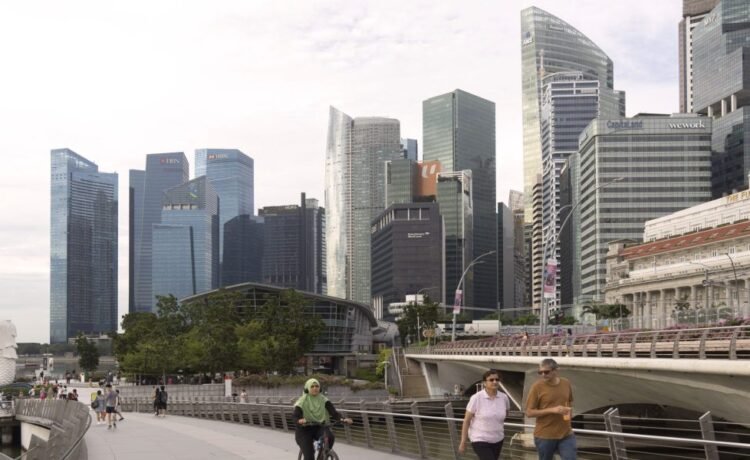During the pandemic, ultra-wealthy individuals flocked to Singapore, attracted by its less strict controls and favorable tax policies. The number of single-family offices based in the city-state more than tripled in three years, rising from 400 in 2020 to 1,400 by the end of 2023 according to government data.
But the industry is coming under scrutiny after Singapore uncovered its largest-ever money laundering case, leading to the arrest of 10 foreigners and over 3 billion Singapore dollars ($2.2 billion) in confiscated assets.
Six single-family office funds, granted tax incentives for operating in Singapore, are linked to individuals related to the money laundering scandal, according to Deputy Prime Minister, Gan Kim Yong.
The government withdrew the tax benefits in the financial year when the owners or their spouses were charged or convicted, Gan explained in a statement published Tuesday. Singapore’s deputy prime minister also noted the total value of forfeited assets far exceeded the value of the tax benefits.
Why are family offices going to Singapore?
Family offices manage the wealth of ultra-wealthy families, either individually or as part of a group. Such offices tend to work discreetly to shield the wealth of these families from the public eye.
To entice family offices to set up in the city, Singapore offers tax perks if these family offices meet certain requirements such as local investment or philanthropic activities.
But other factors are also helping attract family offices to Singapore. The country’s “predictable legal and political system offers investors the stability they crave,” says Brendan Foo, co-founder of Forward Risk, a corporate intelligence firm.
Vistra, a corporate business service provider, highlighted Singapore’s well-developed financial and professional services sectors, international connectivity, and strong healthcare and education system as reasons for the city’s appeal to family offices, in an August report.
Singapore also benefited from missteps from other financial hubs in the region. “Erstwhile rivals such as Hong Kong have lost their luster in dramatic fashion,” Foo says.
In March 2019, the Monetary Authority of Singapore, the city-state’s central bank and integrated financial regulator, and the Economic Development Board, a government agency that works to enhance Singapore’s attractiveness to global business, jointly established a family office development team.
After the money laundering case broke in August, MAS in December said that a thriving family office sector could provide job opportunities and capital for businesses. Offices would need to comply with local employment and spending requirements to qualify for tax incentives.
A multi-billion dollar money laundering scandal
Last August, Singapore arrested 10 foreigners, primarily of Chinese origin but holding multiple nationalities, in simultaneous raids across the country. The government seized assets, including luxury properties, cars and gold bars, worth billions of dollars.

Ore Huiying—Bloomberg via Getty Images
The 10 arrested individuals were charged and convicted with crimes including forgery, laundering profits from organized crime, and being part of illegal online gambling operations targeting those in China.
The scandal also ensnared property agents and multiple banks. Further investigations are currently underway against 17 additional suspects not currently in Singapore.
None of the arrested individuals were on Interpol’s “red notice list” when they applied for visas into Singapore, claimed Second Minister for Home Affairs Josephine Teo in October.
Since the scandal broke, authorities are ramping up scrutiny of the financial sector, such as broadening the scope of due diligence checks.
On Tuesday, the government proposed legislation that will allow authorities to prosecute offenders for money laundering without showing a direct link between the illicit gains and the original crime. The proposed bill will also allow officials to investigate money laundering linked to environmental crimes in other jurisdictions.
The additional scrutiny is putting off some once-eager investors hoping to set up in Singapore. Thanks to bureaucratic delays, some Chinese families are reportedly turning their attention back to Hong Kong.















